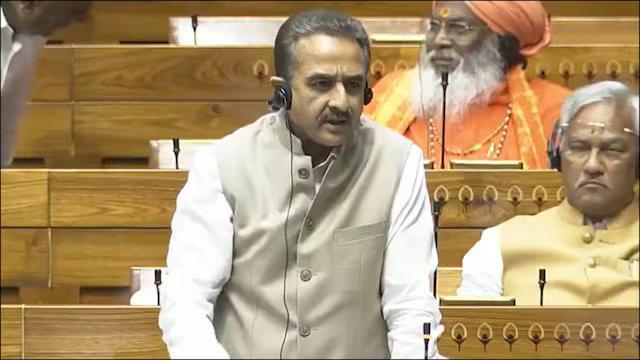
Unacceptable: MoS Kirti Singh on CPEC’s Expansion to Afghanistan
The China-Pakistan Economic Corridor (CPEC), a flagship project of China’s Belt and Road Initiative (BRI), has been making headlines recently with the news that it is set to be expanded to Afghanistan. The development has sparked widespread concerns and debates, with India being one of the most vocal critics of the move. In a recent statement, Minister of State for External Affairs, Kirti Vardhan Singh, made it clear that the Indian government has consistently protested against the inclusion of CPEC in third countries and has asked the parties concerned to cease these activities.
The expansion of CPEC to Afghanistan has been met with strong opposition from India, with the government terming it as “unacceptable”. Singh’s statement in the Rajya Sabha, India’s upper house of parliament, was a clear indication of the government’s stance on the issue. “Any expansion of so-called CPEC projects to third countries is unacceptable,” Singh said. “Government has consistently protested to parties concerned over the inclusion of CPEC in third countries and has asked them to cease these activities,” he added.
India’s opposition to CPEC’s expansion to Afghanistan is not new. The country has been vocal about its concerns over the project’s implications, particularly with regards to regional security and stability. The CPEC, which is a $62 billion project, passes through Pakistan-occupied Kashmir (PoK), a disputed territory that India claims as its own. The project’s inclusion of Afghanistan, which shares a long border with Pakistan, has raised concerns that it could further destabilize the region.
India’s concerns are not unfounded. The CPEC has been criticized for its lack of transparency and accountability, with allegations of corruption and environmental degradation. The project has also been accused of deepening Pakistan’s dependence on China, which has raised concerns about the region’s security and stability. The inclusion of Afghanistan in the project could exacerbate these concerns, potentially leading to a further erosion of regional stability.
Moreover, India has concerns about the security implications of CPEC’s expansion to Afghanistan. The project’s inclusion of Afghanistan could lead to an increase in Chinese military presence in the region, which could have far-reaching implications for regional security. India has already been concerned about China’s growing military presence in the region, particularly in Pakistan, and the expansion of CPEC to Afghanistan could further complicate the situation.
The Indian government’s strong opposition to CPEC’s expansion to Afghanistan is not just about regional security and stability. It is also about the country’s own economic and strategic interests. The CPEC is a part of China’s BRI, which has been seen as a means for China to expand its economic and strategic influence in the region. By opposing the project, India is trying to protect its own economic and strategic interests, particularly in the region.
India’s opposition to CPEC’s expansion to Afghanistan is not without its challenges. Pakistan and Afghanistan have already agreed to the project, and China is keen to push ahead with the development. The Indian government will need to work closely with its international partners to build a consensus against the project. The country will also need to develop its own economic and strategic initiatives in the region to counterbalance the influence of China and Pakistan.
In conclusion, India’s opposition to CPEC’s expansion to Afghanistan is a clear indication of the country’s commitment to regional security and stability. The project’s inclusion of Afghanistan could have far-reaching implications for regional security and stability, and India is right to be concerned. The Indian government will need to work closely with its international partners to build a consensus against the project, and develop its own economic and strategic initiatives in the region to counterbalance the influence of China and Pakistan.






